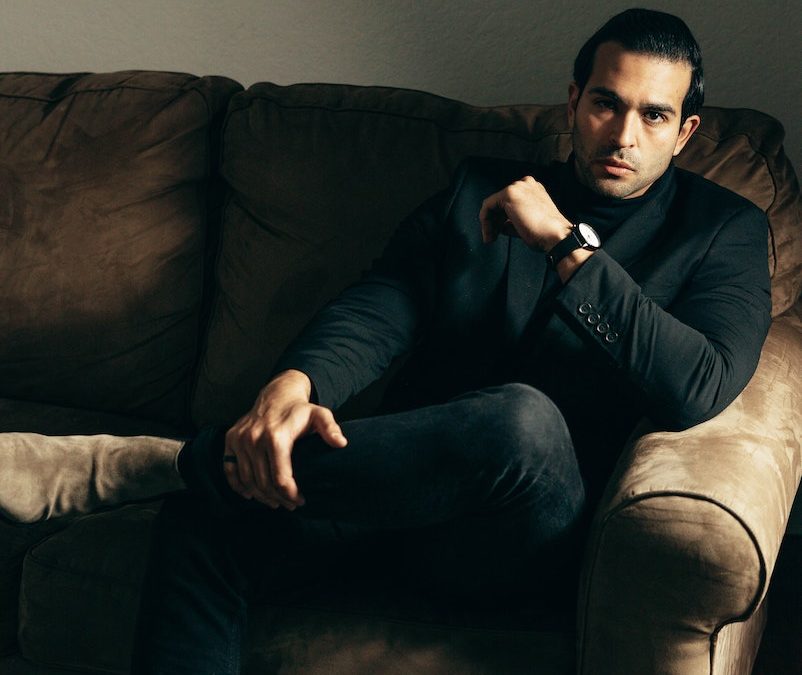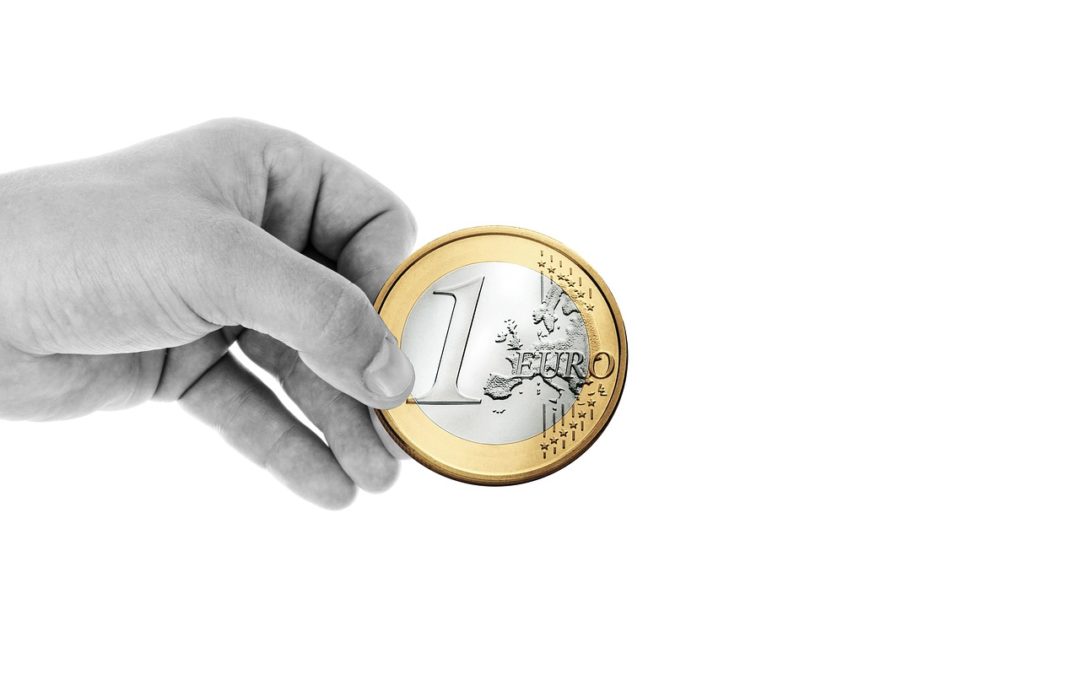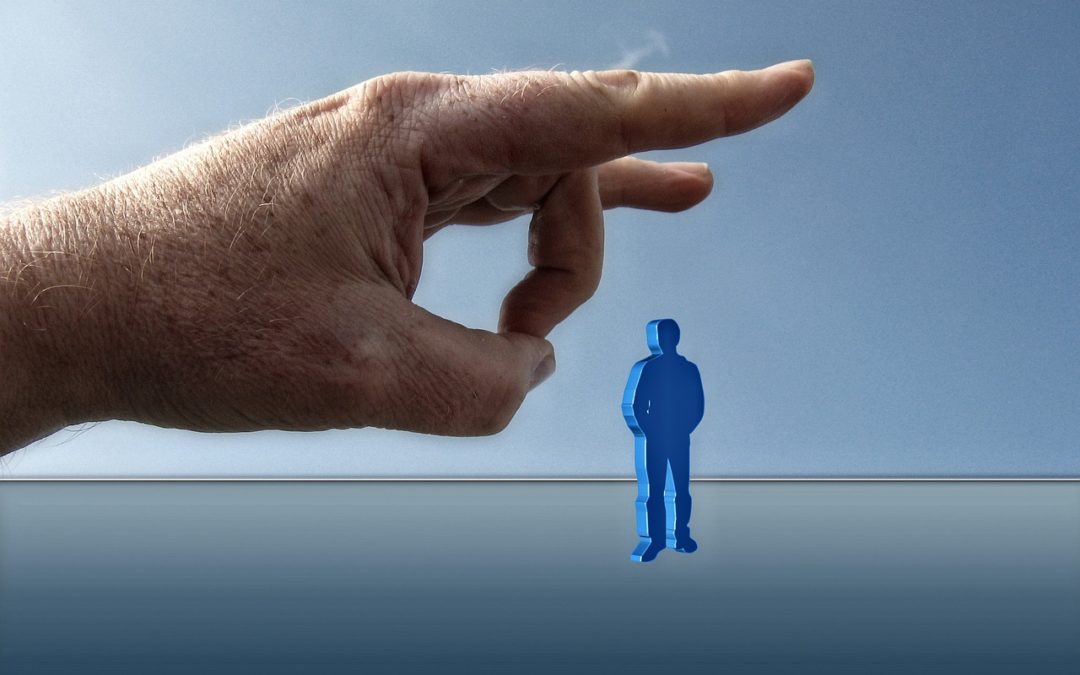
by admin | Jan 6, 2023 | Simple Self Help
Having been a salesperson for years I learned early on that if people don't buy from me there is another person waiting for my call. I used to have a terrible time in sales and life success until I realised this point.
In my first weeks out of university, knowing that I wanted to be around people and liked the principle of selling, I managed to get myself an interview with an office equipment company. I passed this and ended up being out on the road with my company car and sample machines. I felt physically ill sometimes trying to book appointments and then trying to sell a machine once I was in the appointment. However, once I could separate the fear of rejection from the process of selling, life and my work became a lot simpler.
One of the reasons it became simpler, was that I realized that selling office products was not what I wanted to do, and I found other products and offerings I felt a better connection to. The other reason - and the one that was the most important in terms of feeling good about myself - is that I grasped the concept that it was a numbers game as well as being about relationships. By putting more effort into learning better skills with people, as well as stepping away from situations that were unprofessional, I began to enjoy the selling industry. I also started to get better results because I was focusing more on what the prospects wanted than on what I had done before, which was to make them want my product.
Often they were as keen to find someone to listen to them and to be able to hear the problems they were facing. If I had a solution for their issues, even better! Where there was simply no common ground between us, no mutual reason for being in contact with each other, then as soon as I let go of the need to feel liked or appreciated, the pain was gone. Either there was a working opportunity to do some thing or there was not, and no amount of being nice or wanting to be liked would make any difference at all.
This is true for life principles in that regardless of whether you are suggesting an opportunity, building a friendship, developing a network, or simply getting through your day, you are bound to be in contact with people you just cannot relate to. The fact that they feel the same is nothing to be concerned about.
Just find someone who either likes you and what you have to offer, or someone who just likes the offer because it is what they need and have been looking for. Either way you win. Both of you.

by admin | Jan 1, 2023 | Declutter
In exploring our own situation of a house filled with 'stuff' and all the emotional issues I felt around these possessions I started to look at the themes of letting go, of discarding and living with less. You have read about the 'light switch' moment when I was about to buy yet another book and realised the stupidity of doing so, and of how that moment started the conversation in my mind about doing the same or better with less possessions and better energy. Let me tell you now about another trigger for me.
I searched online for people choosing to live fulfilling lives with less than they might have had before or for blog articles about frugal living and minimalism. Through such a search I found the documentary called "Minimalism" and sat one evening to watch it. Produced by Matt D'Avella it explores the conversations and ideas discussed by friends Joshua Fields Millburn and Ryan Nicodemus. In looking at this I felt as though I were discovering for myself a previously hinted at, but largely unknown, life space occupied by people who have turned their back on consumerism and instead questioned what they need to live well and to live happily. If Consumerism is the mass wave of being swept along in buying the latest cellphone, or fighting - sometimes literally - for the best deal at a store opening on Black Friday, then the opposite of this is making what you have last longer and being in a place where the same amount of money now buys you more of what you will appreciate and preserve.
In one example from the "Minimalism" documentary an architect who designs tiny homes talks about his lifestyle, the choices he has made and the freedom he considers he has from living with less. He lives in an off grid trailer unit that can be towed by a vehicle to an alternative site when he chooses. It has a double bed, kitchen, fold down dining table, wifi, solar panels on the roof, a shower room and toilet, shelves for his favourite books. It has good headroom and eaves storage as well. He can hook up the tiny home and move it across the city or he can take it across the country. He has his home in one space that gives him the essentials of what he needs to live well.
Within the same programme is an interview with a man in his twenties who has reduced his belongings to 51 items that he can pack into just two bags, a weekend shoulder bag and a laptop bag. With just these items he lives a very flexible life, able to work from different places around the world as he chooses, precisely because he doesn't have the baggage that we surround ourselves with in everyday life. He doesn't have the burden of living in one place, can earn money and pay rent where he chooses, visit fiends nationally or globally and still maintain what - for him - is a lifestyle he can enjoy.
We are demanding more space and more facilities in buildings that we make proportionately less use of than our parents and grandparents. Garages are used primarily for storage of clutter rather than for the storage of a vehicle. Rarely are they spaces where we keep our workshop and tool collection. Instead we use such skills less and pay other people to do the repair work for us. The lack of knowledge over how to maintain a house comes at a financial cost. There has been a vast growth in self-store facilities where people pay to have someone else to store their sealed boxes. Often times there is a correlation between people deciding to stop paying for long-term storage and their realisation upon collecting the boxes of items, that the things they have stored were not worth the money spent for that same storage hire.
I went through much the same thing when, for a two year period following my divorce, I placed a lot of things in the local self-storage depot. The storage cost was nearly a thousand dollars. When I finally collected the items I had been storing I threw away almost 90% of them. The whole exercise had been a knee-jerk reaction to moving from a large family house to a small space just for my own use and I had not thought it through. It would have been more cost effective to give away what was predominantly clutter, instead of paying a company to place it in a locker unit for me!
The access to cheaper materials and fabrics from the developing world, and the low cost of labour in such producing marketplaces, has allowed us to see disposable or low wear clothing as more affordable than nutritious food. The cost to the planet of the energy required for the creation and global distribution of this level of production has massive consequences. The minimalists are sharing a message that it is better to lead a life where you can rely on far less money because that money will go so much further when spent on items that are durable, and which of course you love and appreciate. When you cost of living drops, but you are able to maintain or enhance that standard of living, you are in a good place. Declutter and realise what you no longer need. This is the way you become free and gain greater happiness and contentment with your life.

by admin | Dec 28, 2022 | Simple Self Help
My late friend Ray Harris of New Orleans has often spoken with me about the importance of role models in his early life when he was growing up. At different times in these critical years people appeared in his life at just the time that he required help and support. When he was in school a particular teacher took Ray under his wing and introduced him to the joy of reading and the magic of words. Slowly but surely Ray saw his ability with words grow to match his hunger for the books that were placed in front of him.
When he left school and was getting work experience the right employer turned up at the right moment to give him an insight into what an experience of benevolent and caring employment should look and feel like.
As he entered the world of work and adult responsibility yet another man came forward to provide Ray with a model of decent, ethical behavior and of a value system he could adopt with confidence and surety.
Life is difficult and confusing enough as it is. If there is scope for lifting the load for someone you work with or cross paths with - and you are willing to do so - then pick up the gauntlet and rise to the challenge. Offer a hand up (as opposed to the charitable hand out) to an individual who strikes you as able to benefit from or appreciate the additional input you can give.
Ray has always taken the view that he was blessed with the support he received from outside his family and this lead him into an active participation in "Each One Help One", an organization dedicated to matching Mentors with those requiring that little bit of extra help.
Regardless of your age, experiences, work history or appetite for life there is someone out there who is absolutely ready for the input, guidance and contribution you can provide. Listen out for someone needing your help. Be open to invites for help or listening, for the sharing of simple guidance and suggestion.
Make yourself available and you will make a huge difference. Until you make the first step toward a mentoring organisation they will not know that you are there with the requisite strengths that are needed by someone they represent.

by admin | Dec 18, 2022 | Declutter
While exploring our own situation of a house filled with 'stuff' and all the emotional issues I felt around these possessions, I started to look at the themes of letting go, of discarding and living with less. I had my own 'light switch' moment when I was about to buy yet another book and realised the stupidity of doing so. I had already had shelves piled high with books, so why bother with another that would take up space, cost money to buy and then gather dust? That moment started the conversation in my mind about doing the same or better with less possessions and better energy.
When you look at you own home space, how much of the things in the building do you actually need? What proportion of your home space would you need if you just kept what you love and use each day?
If Consumerism is the mass wave of being swept along in buying the latest cellphone, family vehicle, or fighting - sometimes literally - for the best deal at a store opening on Black Friday, then the opposite of this is making what you have last longer and being in a place where the same amount of money now buys you more of what you will appreciate and preserve.
In looking at what we need to live with in our own space we have begun conversations with new friends and people who have made a decision to be in a different and better place. A lady in our town runs a beauty store on the high street. when she finishes work each day she gets in her car and drives five miles or ten miles to wherever her floating home is moored up. Five years ago she and her husband sold their house and split their money between long term savings and a previously owned narrowboat. Moving from a three bedroom house to a boat that is really just a thirty foot long corridor has completely changed their approach to possessions and what is needed. "We each have plenty of clothes. Our boat has a galley kitchen, a combination washer dryer machine for clothes, and a dining table that folds away when not used. We have our own bedroom with a conventional bed and two fold away camp cots for when friends stay. We have a wood burning stove that heats the whole boat for little cost. We have a shower instead of a bath, lots of shelves along the length of the boat for books, ornaments and general storage. We have potted plants and shrubs on the roof along with bicycles and firewood, with sitting out areas to the the front and rear of our boat. All of the stress of buying and paying for the extra 'stuff' of living in a house, all of that pressure and worry has gone."
In an example from a helpful and inspiring online documentary called "Minimalism" I watched a man in his twenties talk about how he has reduced his belongings to 51 items that he can pack into just two bags, a weekend shoulder bag and a laptop bag. With just these items he lives a very flexible life, able to work from different places around the world as he chooses, precisely because he doesn't have the baggage that we surround ourselves with in everyday life.
The canal boat and the youngster with 51 items might seem extreme but they are real examples of how people have decided to do just as well with less belongings, wanting to lead lives that are meaningful to them without the conventional approach to the debt associated with possessions and home spaces.
We are demanding more space and more facilities in buildings that we make proportionately less use of than our parents and grandparents. Garages are used primarily for storage of clutter rather than for a vehicle. Rarely are they spaces where we keep our workshop and tool collection. Instead we use such skills less and pay other people to do the repair work for us. The lack of knowledge over how to maintain a house comes at a financial cost.
You can lead a life where you can rely on far less money because that money will go so much further when spent on items that are durable, and which of course you love and appreciate. When you cost of living drops but you maintain or enhance that standard of living, you are in a good place. Decluttering and realising what you no longer need is a part of the process of becoming free and gaining greater happiness and contentment with your life. Without all the belongings that surround you, how might your life look different?

by admin | Dec 4, 2022 | Declutter
Clutter is not just about possessions in your house that you no longer use. People who are a negative influence in your life and on how you feel, these too need your focus in order to reduce the amount of time you spend with them.
Since I write about the energy in your home that is generated by objects, possessions and your art, it shouldn't come as a surprise that difficult or toxic people should be treated just like any other negative influence. Toxic people are thankfully a minority, but the strength of their effect upon is can be devastating.
In truth it is common for us to go through the letting go process of discarding items from our lives and to find ourselves thinking about some of the relationships that are similarly heavy, unpleasant or even painful. These need to be dealt with for the same reasons that old, damaged or ugly possessions need to be released from our lives. Difficult people also cause unhappiness, foster discontent or actually contribute to us being unhappy or unfulfilled.
A good and healthy friendship uplifts and supports us. In contrast to this a toxic person will bring poison into the relationship, causing fear, worry or concern. Feuds, fights and arguments are not the characteristics of friendship, but of a strained and difficult relationship that you don't need. There is no need for you to put up with such a person or to have them in your life. There can be moments in any friendship where there will be times of absence or events that prevent us from being together, but the general energy is of help, care and nurturing. Be clear with yourself about any 'friendship' that is less than this to you.
Be clear in asking yourself questions like these:
- What does a good friendship look like?
- What value does this person bring into my life?
- How do they contribute to our relationship?
- How do I feel when I am around them?
Letting go of a relationship or friendship that is not supporting you in being 'Your Best You' is something you need to do in order to live an optimal life, to reduce the distraction of your focus from what matters, but also to stop the drain of your energies. Saying it is one thing though, and actually doing it, making the separation is another thing completely!
See your good relationships as the benchmark.
Consider why these work, what is good about them, and why there is a natural lightness and ease to the way they are. Seeing the positive ones this way, with an intentional focus, allows you to compare them with the more difficult, awkward and difficult relationships. Look at the amount of your free time you are spending in these good and positive relationships, versus the time you allow to be lost in the ones which bring you no benefit or which actually cause you to feel pain or hurt.
Don't wait for "Sorry"
When a friend has caused you to feel upset, distressed or to feel ignored, don't be the person waiting for an apology. It may never come. Oftentimes the toxic person won't even be aware of the damage they have done to you with their selfish behaviour or sharp words. It seems to be the natural way of things that such people can have low levels of self-awareness. Let go of them and move forward.
Ask for help
In letting go of the bad ask for help from those friends who can appreciate and understand what you have been going through. You have to let them know what you have been struggling with in that other relationship, and the chances are quite high that they have been aware of the situation and waiting on the sidelines to be given permission to step in and help you make some changes.
Let yourself feel the sadness
Endings can be difficult and they can be sad. Allow yourself to mourn for the low quality relationship that is ending, if this is what you want to do. Close it down, and let it leave your life. Acknowledge that it did once work well and gave you something you might have needed or wanted at a different time when you were not the person you have since become.
Spend less time in that friendship
Decline an invite. Leave a gathering earlier than normal. Decline an invite. Just because your cell phone rings, do you have to answer it? Let their call go to voicemail. Perhaps reply the next day or not at all. Don't respond to a text message or a voicemail. Let it go. Be less available than you were before. Broaden the time gap of responding to their contact, until one day you don't reply at all.
Journal and reflect on the separation
A relationship is about what is shared between the two people. Can you select on what you received and gave in this friendship? Was there imbalance, humour, kindness, fun? The lessons you take from this can be used to help you move forward. Journal as you go through your recollection of the time with this person. Resolve to let go and move on. You have a good life to live.




